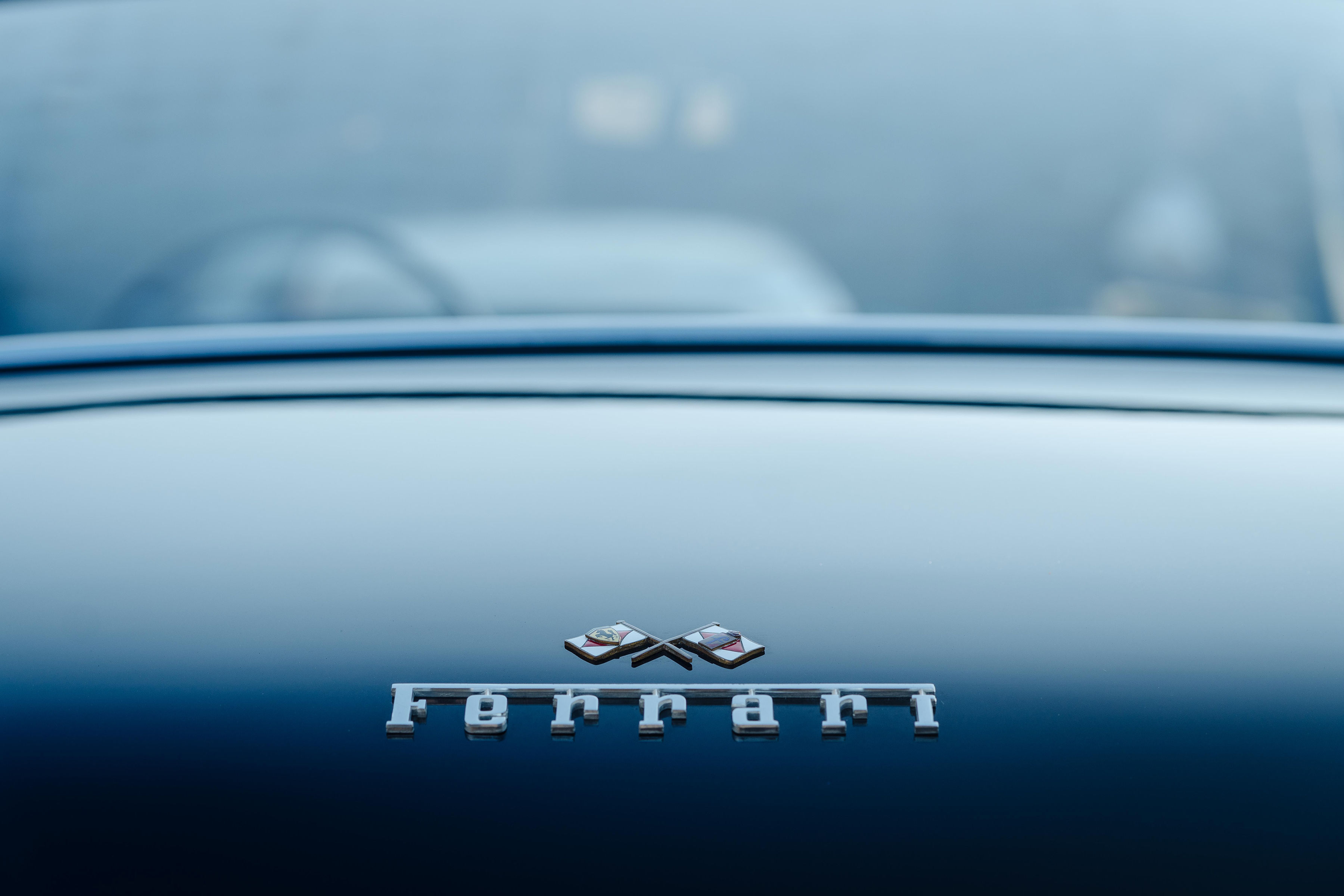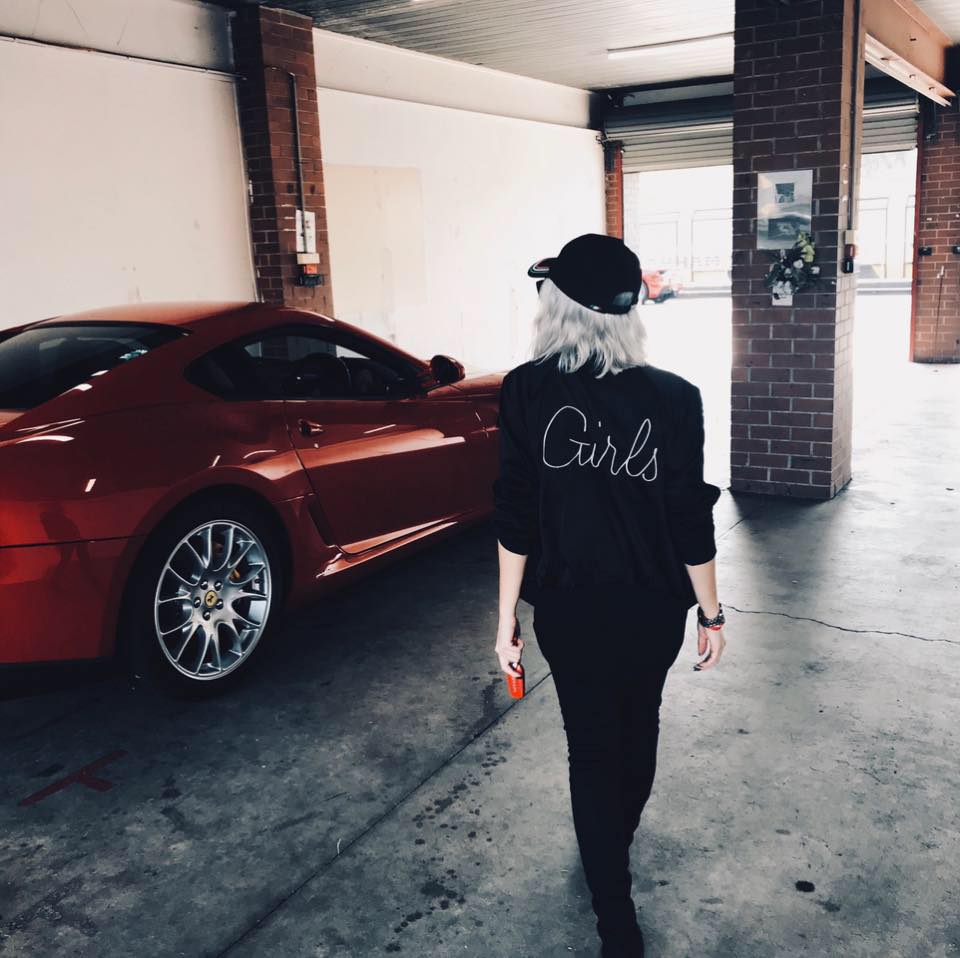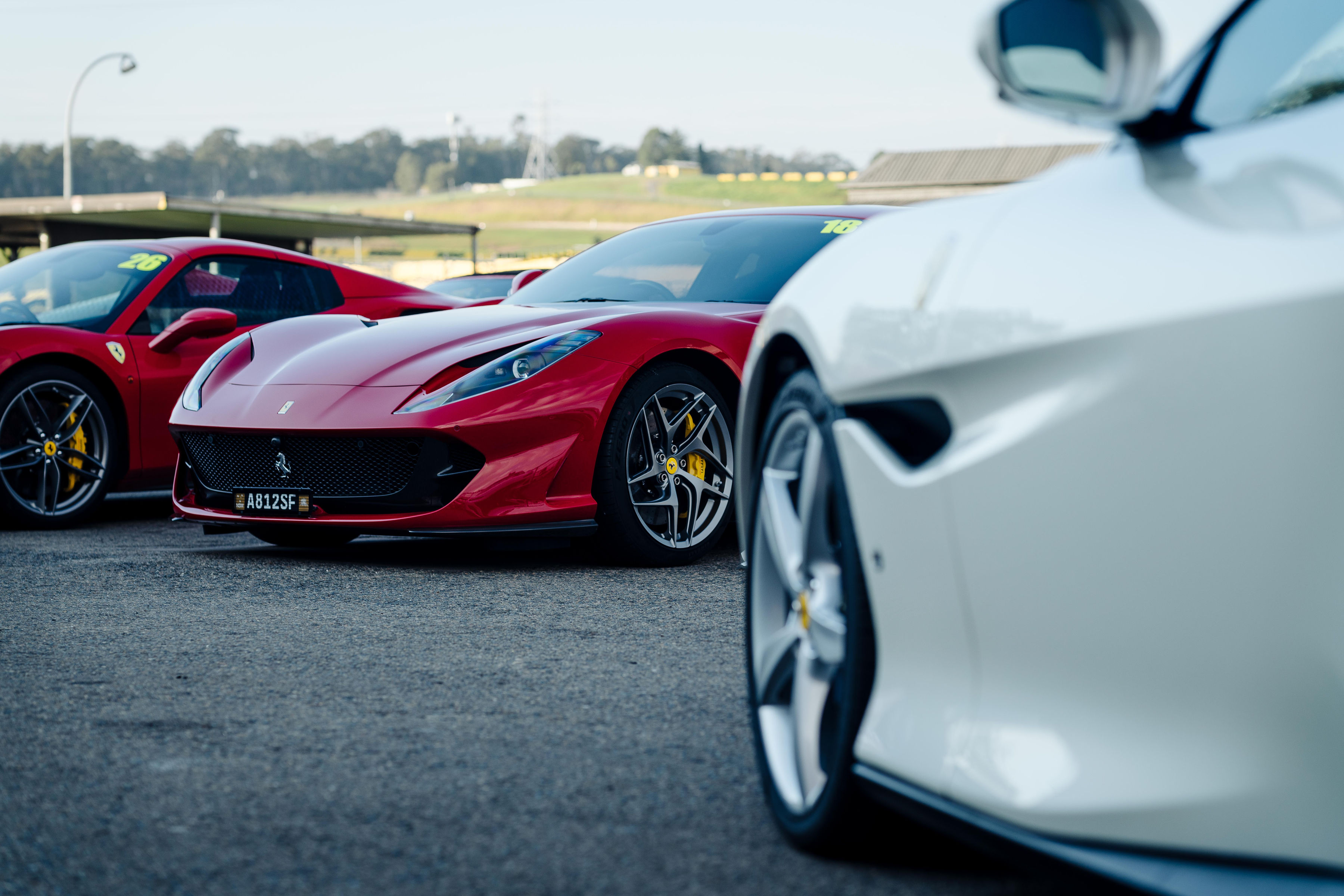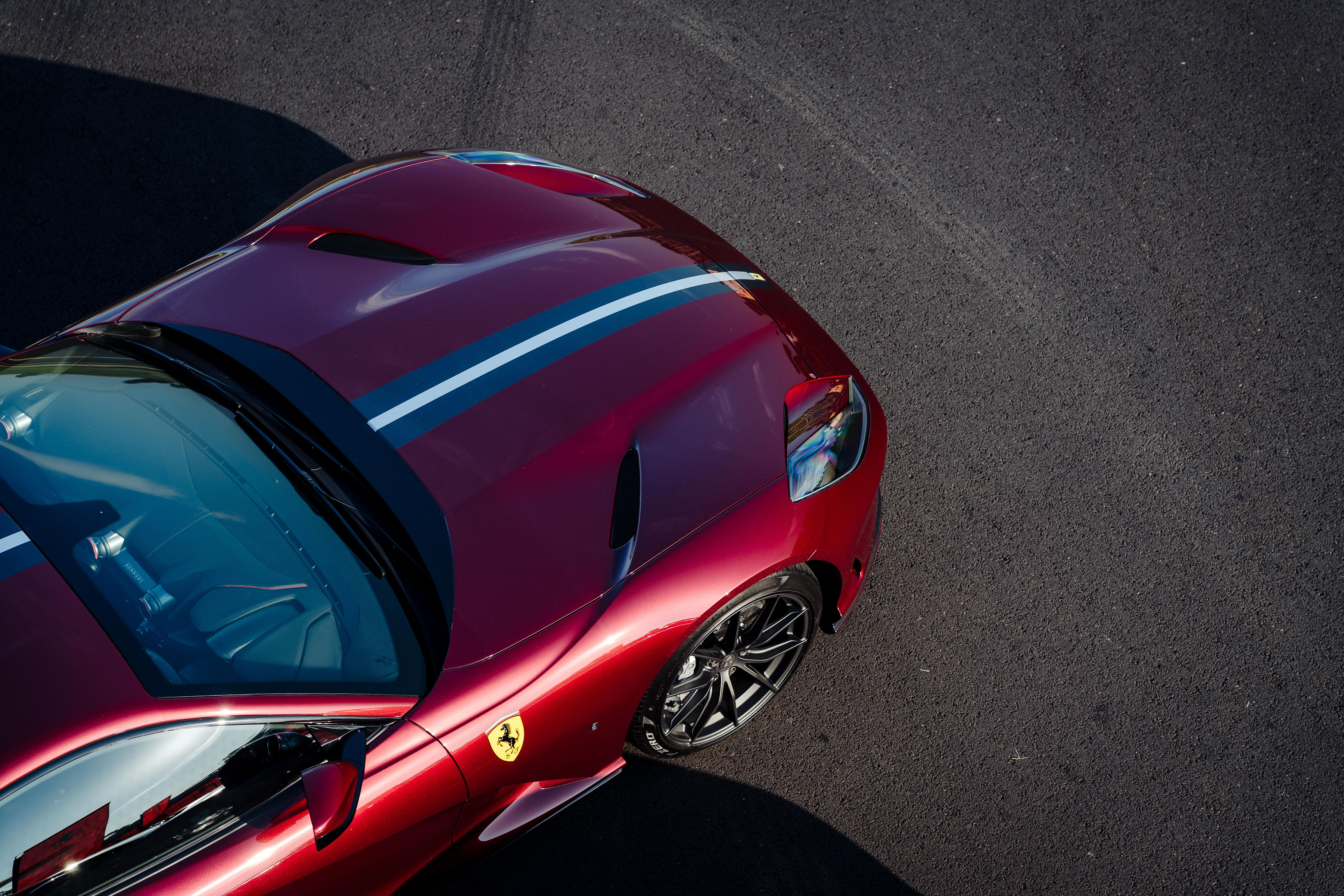
ELLE, July, 2019 (LINK)
Female drivers unite.
"Can the elephant actually dance?"
Excuse me?
"The elephant. You!"
It's 7am at a hotel breakfast buffet, I'm jetlagged and harbouring an open bar hangover while on an overseas press junket. I'm also confused as to why this fellow journalist, also here for the junket, is calling me an elephant. "A woman who writes about cars…" he scoffs. "It's like a dancing elephant. Everyone comes to see the spectacle but it can't actually dance—it's just swaying there pretending it can."
I'm sure to many female and non-binary professionals who work in male-dominated industries, such as music, construction, finance and STEM, this kind of comment causes the eyeballs to retract. Even in the most supportive and positive industries (which I should say my experience mostly has been), they can shake your confidence to the core.
Women are naturally tuned to suffer from imposter syndrome, especially if we are trying to learn while we do. And in the case of this particular anecdote, I instantly became self-conscious about my place, my knowledge and my desire to succeed. I realised that was his aim. "Don't you worry about me. I can dance," I said, shooting straight for the void behind the eyes.
This exchange has stuck with me for years, having always assumed many others had experienced something like that—be it in a car dealership, on the road or trying to seek out car advice. But what I hadn't realised, until recently, is the absolute extent of this lack of confidence occurs even in the most privileged car tribe: the female Ferrari owner.
Think about it: If the women who own some the fastest and most exclusively luxurious cars in the world don't have the confidence to drive their own cars, then what chance do the rest of us have?

"I know the name of the colour, I know the type of leather, I know the extras we ordered, I know name of the guy who sold it to us—I know all the other cars that we could have bought instead of this one," says Jennifer* a Ferrari owner, talking to me at a recent women—only track day in Sydney. "But what I don't know is how to turn the thing on!"
Jennifer is just one of many women in attendance who pipe up to joke about the lack of confidence they have to drive their Ferrari, despite actually being incredibly drivable, comfortable cars. "My husband bought a Ferrari, and everyone was congratulating him and I'm going 'Uh, hello?! It's my Ferrari too!' and everyone—my family, friends even my kids said to me, 'Oh you're not going to drive it!' "People just dismiss you," says another woman. "Well, stuff them, I did it. I drove it down a race track and I was terrified, I thought I was going to vomit and it felt bloody unreal!"
The event where I meet these supercar owners is part of the Italian brand's Ferrari Driven Women initiative, which it launched in 2018. In the case of this particular track day, it is reserved for owners only, aiming to help give these drivers of all experience some confidence in their abilities—be that on the track or off.

The goal of the Ferrari Driven Women initiative was to celebrate the brand's community of female drivers, owners and lovers and give them a place to meet—but I don' t think even Ferrari was prepared for the discussion that come out of this event.
Ferrari Australia claims that this country boasts the highest female ownership worldwide, with nine per cent of all owners being women. That is an outstanding number, but sadly, not many of these women know each other—so an event like Ferrari Driven Women also acts as a sort—of Ferrari famiglia, a space where these women can meet, talk and empower each other through a shared love of cars.

While there are some brands, like Audi and Porsche, who also have dedicated women—only events, like track days and Porsche's Women With Drive; initiatives like this are few and far. In fact, there are very few female—only car clubs nationally. As one attendee put it, "It doesn't matter that its a Ferrari—I came here to accomplish something everyone said I would never do."
"As a woman you come to a track day and you feel like you're on the perimeter, on the boundary," says Melissa, who has attended many days at the racetrack with her husband. "You attend a race day, the women are sitting there supporting their husband's dream. This was for us. It was more about having our own exclusive day and making us feel welcome."

Melissa notes that any financial decision her husband makes always requires her approval, cars included. So being able to enjoy the family's grand purchase meant more to her than she realised (and probably will to Ferrari down the line). "It really meant to a lot to be able to do this and not feel intimidated."
"My mum signed us up—she'd never driven the car, never done any track days," says Charlotte, a P-plater (there is also an L-Plater here in attendance FYI) who has borrowed her father's car for the day and brought her mum along for the ride.
"I've done track days and am always the woman. Here, I didn't feel awkward, there's no ego and everyone is really encouraging."

Charlotte, a car lover herself owns a Mercedes-Benz A45, begins telling tales of having men ask her if the car belongs to her boyfriend or her Dad. "There is this idea that a woman can't drive or own a cool car," she says. "It really needs to change." Charlotte's mum pipes up. "We raised our daughters to be financially independent, to feel like they can achieve whatever they want and then succeed. We taught our daughters to drive manual and get their licence and really have this sense of independence and empowerment."
And as for Mum? "I feel exhilarated! I didn't want to come! But I'm so glad I did! My husband has always encouraged me to drive the car, he's always been like 'if you scratch the rims or do whatever, it doesn't matter, it can be fixed.' But now, I felt empowered, now I will take it out more often."

But by far the genuine "overheard at a Ferrari track day" moment was from one of the women who had never driven the car before, let alone unlocked it. "I'm going to play a trick on my husband when he's away next week!" she laughs. "He has a tracker on it, so I'm going to take it out and he's going to shit himself—he'll wake up and look at the app and see it driving it around! Maybe I'll take it to the track again so he can see it going around in circles! HA. I know how to start it now!"
Of course, take away the privilege of the world's most recognisable brand, and I think many of us can relate to the fear of occupying a space we've been told is too hard, scary or alien. But why? The motoring industry has had over 100 years to fester in its misogyny, and yet, it is an industry that peddles a product used by women every day. We're talking cars here, not high-performance flesh lights.

As women, cars are a part of our lives—we drive them, ride in them, put our kids in them, holiday in them, admire them and buy them. We influence purchase, we do the research and we use them to flex our own empowerment and financial independence. And according to the Australian Bureau of Statistics, we are significantly more likely to drive passenger vehicles to work/study than men.
Okay, maybe not all of us have a burning desire to fling a supercar around a racetrack, but it shouldn't be a novelty if we do. That's where we can do better.
*Name has been changed.